Agora (Spanish: Ágora) is a 2009 Spanish English-language historical drama film directed by Alejandro Amenábar and written by Amenábar and Mateo Gil. The biopic stars Rachel Weisz as Hypatia, a female mathematician, philosopher and astronomer in late 4th-century Roman Egypt, who investigates the flaws of the geocentric Ptolemaic system and the heliocentric model that challenges it. Surrounded by religious turmoil and social unrest, Hypatia struggles to save the knowledge of classical antiquity from destruction. Max Minghella co-stars as Davus, Hypatia's father's slave, and Oscar Isaac as Hypatia's student, and later prefect of Alexandria, Orestes.
| Agora | |
|---|---|
Teaser poster | |
| Directed by | Alejandro Amenábar |
| Produced by | Fernando Bovaira Álvaro Augustin |
| Written by | Alejandro Amenábar Mateo Gil |
| Starring | Rachel Weisz Max Minghella Oscar Isaac |
| Music by | Dario Marianelli |
| Cinematography | Xavi Giménez |
| Edited by | Nacho Ruiz Capillas |
| Distributed by | Focus Features Newmarket Films Telecinco Cinema |
Release date |
|
Running time | 126 minutes |
| Country | Spain |
| Language | English |
| Budget | $70 million |
| Box office | $39 million |
The story uses historical fiction to highlight the relationship between religion and science at the time amidst the decline of Greco-Roman polytheism and the Christianization of the Roman Empire. The title of the film takes its name from the agora, a public gathering place in ancient Greece, similar to the Roman forum. The film was produced by Fernando Bovaira and shot on the island of Malta from March to June 2008. Justin Pollard, co-author of The Rise and Fall of Alexandria (2007), was the historical adviser for the film.
Agora was screened out of competition at the 2009 Cannes Film Festival in May, and opened in Spain on October 9, 2009 becoming the highest-grossing film of the year for that country. Although the film had difficulty finding distribution, it was released country by country throughout late 2009 and early 2010. The film received a 53% overall approval rating from Rotten Tomatoes and seven Goya Awards in Spain, including Best Original Screenplay. It was awarded the Alfred P. Sloan Foundation Feature Film Prize at the Hamptons International Film Festival.
Screenplay
In 391 AD, Alexandria is part of the Roman Empire, and Greek philosopher Hypatia is a teacher at the Platonic school, where future leaders are educated. Hypatia is the daughter of Theon, the director of the Musaeum of Alexandria. Hypatia, her father's slave, Davus, and two of her pupils, Orestes and Synesius, are immersed in the changing political and social landscape. She rejects Orestes's love as she prefers to devote herself to science. Davus assists Hypatia in her classes and is interested in science. He is also secretly in love with her.
Meanwhile, social unrest begins challenging the Roman rule of the city as Pagans and Christians come into conflict. When the Christians start defiling the statues of the pagan gods, the pagans, including Orestes and Theon, ambush the Christians. However, in the ensuing battle, the pagans unexpectedly find themselves outnumbered by a large Christian mob. Theon is gravely injured, and Hypatia and the pagans take refuge in the Library of the Serapeum. The Christian siege of the library ends when an envoy of the Roman Emperor Theodosius I declares that the pagans are pardoned, but the Christians shall be allowed to take possession of the library. Hypatia and the pagans flee while trying to save the most important scrolls before the Christians overtake the library and destroy its contents. Davus chooses to join the Christian forces. He later returns with a gladius and sexually assaults her, but he begins to sob and offers his sword to her. However, she removes his slave collar and tells him that he is free.
Several years later, Orestes, now converted to Christianity, is prefect of Alexandria. Hypatia continues to investigate the motions of the Sun, the Moon, the five known "wanderers" (planets), and the stars. Some Christians ridicule the thinking that the Earth is a sphere by arguing that people far from the top would fall off the Earth. When they ask Davus what his opinion is, he avoids conflict by saying that only God knows these things.
Hypatia also investigates the heliocentric model of the solar system proposed by Aristarchus of Samos by having an object dropped from the mast of a moving ship which demonstrates that a possible motion of the Earth would not affect the motion, relative to Earth, of a falling object on Earth. However, due to religious objections against heliocentrism, the Christians have now forbidden Hypatia to teach at the school. The Christians and the Jews come into violent conflict.
The leader of the Christians, Cyril, views Hypatia as having too much influence over Orestes and stages a public ceremony intended to force Orestes to subjugate her. Hypatia's former pupil, Synesius, now the Bishop of Cyrene, comes to her rescue as a religious authority counterweight but says he cannot help her unless she accepts Christianity; she refuses. Hypatia theorizes that the Earth orbits around the Sun in an elliptic orbit, not a circular orbit, with the Sun at one of the foci. Cyril convinces a mob of Christians that Hypatia is a witch, and they vow to kill her. Davus tries to run ahead to warn Hypatia, but she is captured. They strip Hypatia and are about to skin her alive until Davus persuades the mob otherwise, and they decide to stone her instead. When the mob goes outside to collect stones, Davus suffocates her to spare her the pain of being stoned and tells the mob that she fainted. Davus leaves as they begin to stone her.
- Rachel Weisz as Hypatia of Alexandria. Weisz was already a fan of Amenábar's work when she received the script, and was very interested in the role. Although she had not heard of Hypatia before, she felt that her history was still relevant to the contemporary world: "Really, nothing has changed. I mean, we have huge technological advances and medical advances, but in terms of people killing each other in the name of God, fundamentalism still abounds. And in certain cultures, women are still second-class citizens, and they’re denied education." Weisz wanted to delve more into Hypatia's sexuality and her desires, but Amenábar disagreed. She also received science lessons to help inform her depiction of the character. At the 2009 Cannes Film Festival, Weisz spoke about her style and approach: "There's no way we could know how people behave in the 4th century. I imagine they were still human beings with the same emotions as we have now. There are cultural customs, I guess, which were different. We approach the acting style to make the people flesh and blood and to make the acting incredibly naturalistic."
- Max Minghella as Davus, Hypatia's father's slave. Davus is in love with Hypatia, but it is an unrequited love, and Davus turns towards Christianity instead. When Hypatia is about to be stoned to death at the end of the film, he decides to suffocate her because he still loves her and doesn't want her to suffer any physical pain. The character of Davus was invented as "eyes for the audience" and is not based on any historical account. Minghella grew up in Hampstead, near the same area of North London as Weisz, and found it very easy to work with her.
- Oscar Isaac as Orestes. Student of Hypatia, Orestes is an aristocrat, who like Davus, falls in love with her, and has a strong friendship with Hypatia. Isaac was familiar with the history of early Christianity during the period represented in the film, but like Weisz, he had not heard of Hypatia before joining the project.
- Sami Samir as Saint Cyril of Alexandria
- Manuel Cauchi as Theophilus of Alexandria, uncle of Cyril
- Ashraf Barhom as Ammonius, a parabalani monk
- Michael Lonsdale as Theon of Alexandria, father of Hypatia
- Rupert Evans as Synesius of Cyrene
- Homayoun Ershadi as Aspasius the old slave. He acts as Hypatia's research assistant.
Development
| “ | It's a movie that challenges the audience in terms of reasoning and trying to get into the story. I kept saying the movie is about astronomy and I wanted to express concepts that we study in school—science, mathematics—that don’t show how fascinating the topic is . I wanted to translate fascination with the pursuit of knowledge. I wanted to show astronomy and those who study it in the most appealing way. Those are the real heroes of the movie. | ” |
| — Alejandro Amenábar | ||
After Amenábar completed The Sea Inside (2004), he took a break and traveled to the island of Malta, where he used his free time to explore the night sky. Seeing the Milky Way galaxy, Amenábar began to discuss astronomy with his friends, speculating about extraterrestrial life on other planets. He started to research astronomy and came across Cosmos: A Personal Voyage, by American astronomer Carl Sagan. Amenábar also studied historical figures such as Ptolemy, Copernicus, Johannes Kepler and Galileo, but found himself most interested in the story of Hypatia, a 4th-century Greek astronomer whose history, he felt, was still relevant in the 21st century: "We realized that this particular time in the world had a lot of connections with our contemporary reality. Then the project became really, really intriguing, because we realized that we could make a movie about the past while actually making a movie about the present."
To prepare for the task of recreating the ancient city of Alexandria without relying on computer generated imagery, Amenábar reviewed older sword-and-sandal films such as The Ten Commandments (1956), Ben-Hur (1959), and Pharaoh (1966). A year before the start of pre-production, designer Guy Hendrix Dyas spent three weeks with Amenábar in Madrid to do some preliminary work on the set designs and the recreation of the ancient city of Alexandria so that previs animations could be generated.
The film was produced by Fernando Bovaira, with Telecinco Cinema as the primary producer along with Mod Producciones, Himenoptero, and Sogecable as co-producers.
Filming
Principal photography began on March 17, 2008, on the island of Malta, and was scheduled to last 15 weeks. Production designer Guy Hendrix Dyas used large sets on location instead of computer generated imagery at Amenábar's direction. The construction of the set employed almost 400 people, and was the largest ever designed on the island. Actor Charles Thake (Hesiquius) suffered minor facial injuries on the set when he collided with extras running during a scene. Filming ended in June.
Agora premiered at the 2009 Cannes Film Festival, but the film was initially unable to find a domestic distributor due to its large budget and length. The film also had trouble finding a distributor in both the United States and Italy, although it eventually found distributors in both countries. The North America premiere was held at the Toronto International Film Festival in September, 2009. Agora opened in Spain on October 9, 2009, breaking box office records for that country. A limited release in the United States began on May 28, 2010, opening on two screens at the Paris Theatre and the Sunshine Cinema in New York City. The film opened on the West Coast of the United States on June 4, playing only two screens: at The Landmark theatre in Los Angeles and at Regal's Westpark 8 in Irvine.
Home media
In March 2010, Agora was released in Region 2-locked DVD and Blu-ray formats. A Region 1-locked DVD was released October 2010.
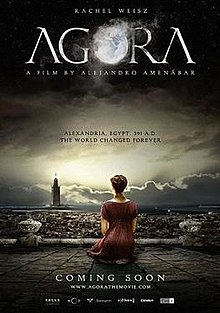 Story of movie Agora Film :
Story of movie Agora Film : 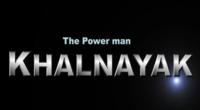
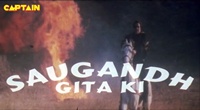


.jpg)
.jpg)
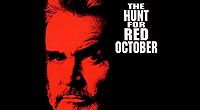


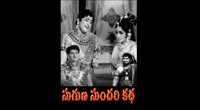





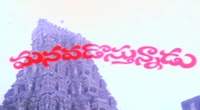
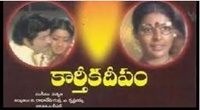



.jpg)
